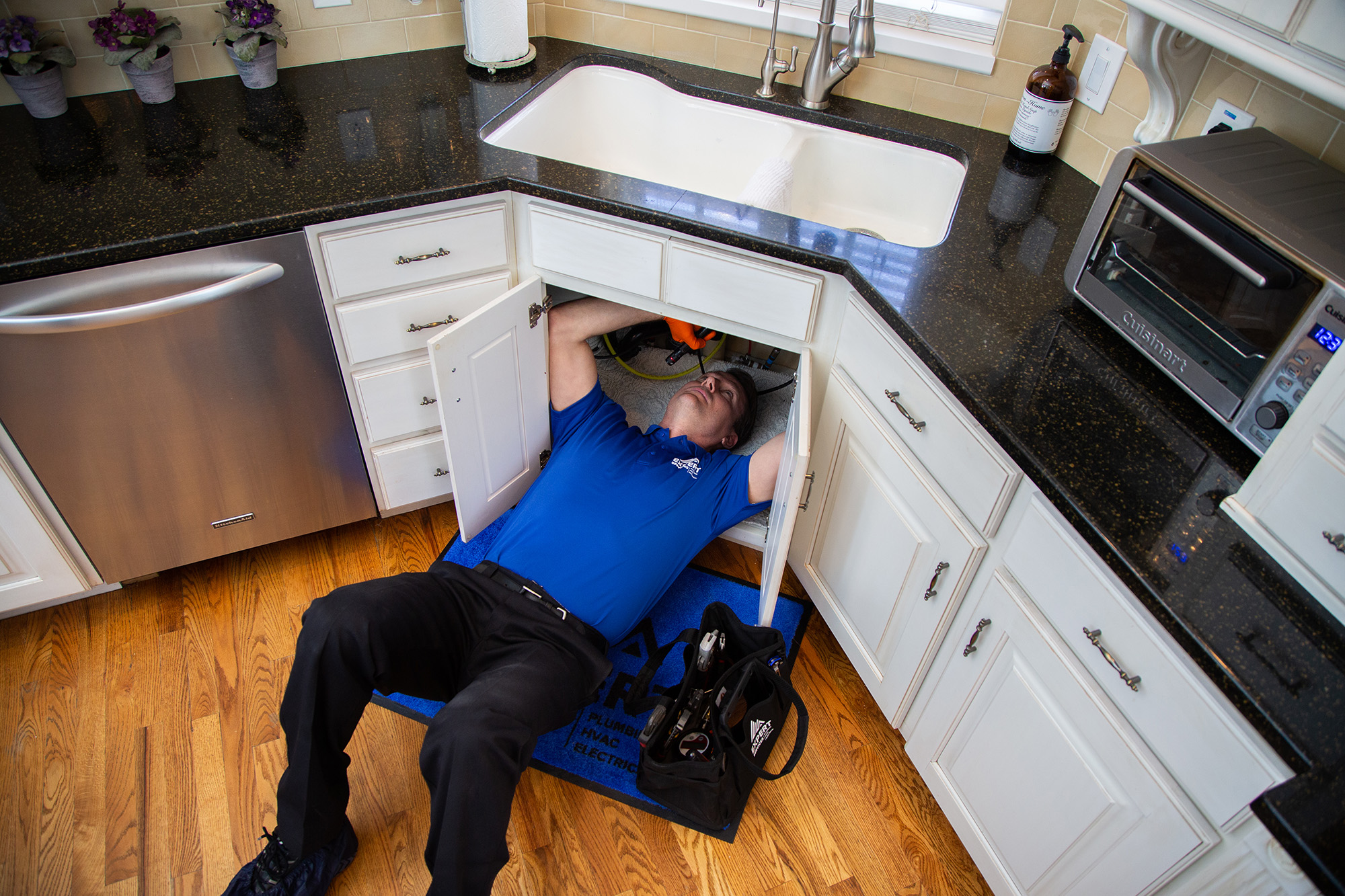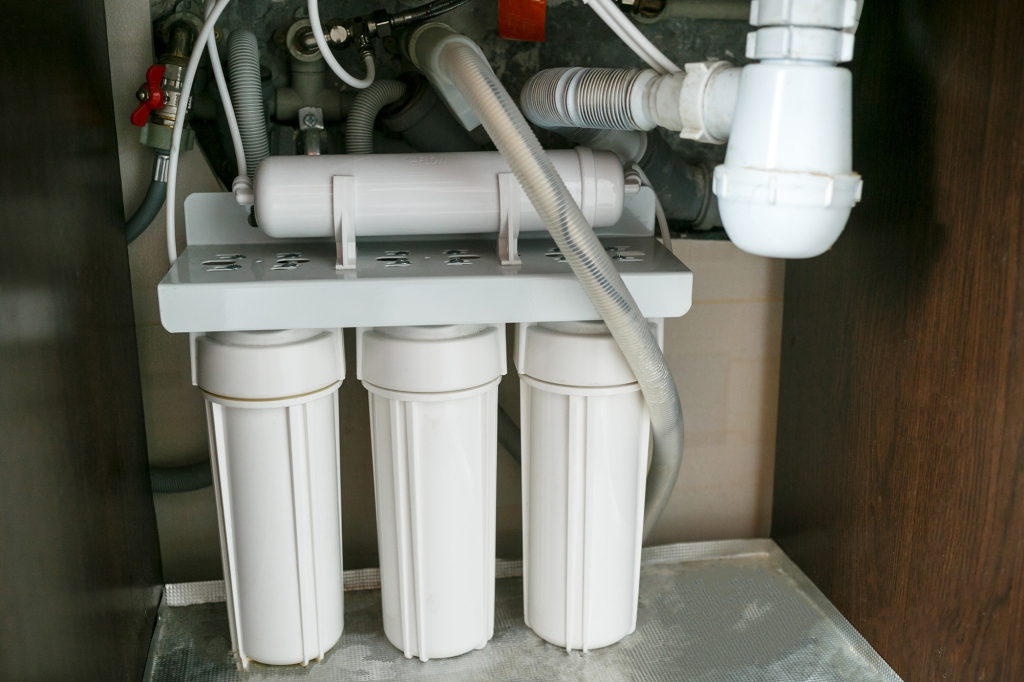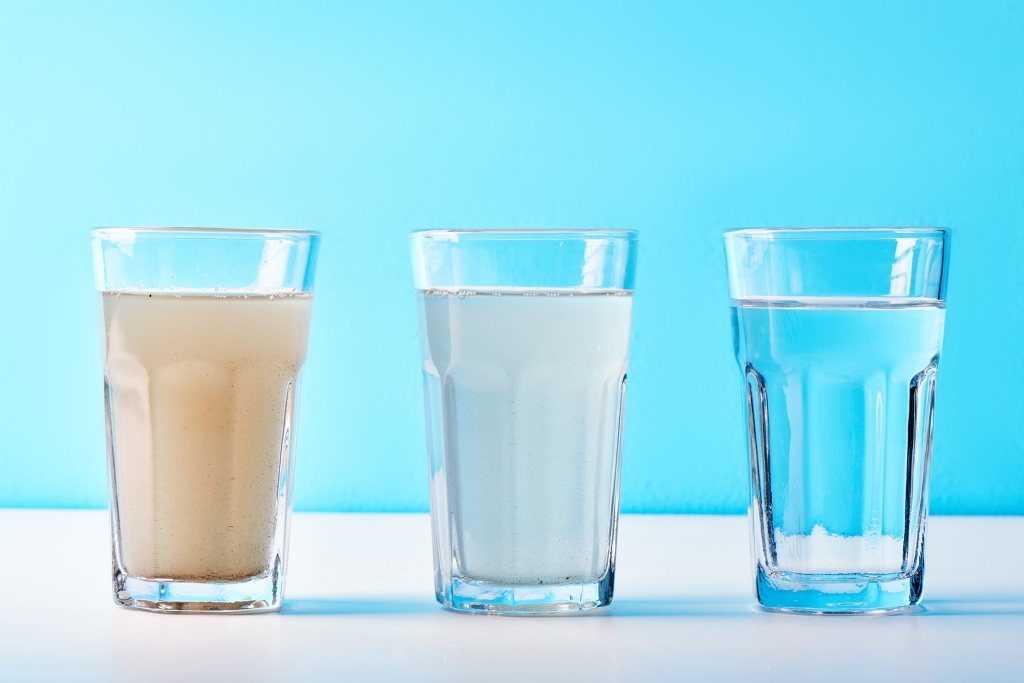Home Water Filtration Systems — Which is Best for Your Family?
With so many water filtration systems on the market, knowing what kind best suits your needs is difficult. But with the help of Expert Services- Plumbing, Heating, Air & Electrical, we can ensure you get the servicing that works with your budget, lifestyle, and concerns.
Let’s talk about the differences between a water softener, carbon filter, reverse osmosis (RO) unit, and a UV water filter. Each of these home water systems serves a unique purpose in helping your home’s plumbing and your family’s health.
What are the Benefits of a Water Softener?
Because of the higher levels of calcium carbonate and magnesium, hard water often feels harsh on your hair and skin. Even your plumbing can take a toll, with buildup clogging your pipes.
Soft water free of chemicals and damaging minerals can make all the difference in the quality of your water. Just like your skin, hard water dries out your hair, and the minerals and ions can make it feel and look damaged. Those with dry skin, especially in Utah’s climate, can especially benefit from the effects of a water softener.
The most common water softeners are all relatively similar, with a few key differences that may change their compatibility with your needs. Talk to one of our experts about the differences between an Ion Exchange Water Softener and a Salt-Free Water Softener.
We often get asked, “Do water softeners filter water?”
They do not; they only remove calcium and magnesium minerals to address hard water. In order to remove contaminants so water is safer for drinking, cooking, and showering — you’ll need to use a water filter even if you already have a water softener installed.
So what kind of water filters are best for you?
What does a Carbon Filter do?
Carbon filters remove contaminants through adsorption. Adsorption means that contaminants are attracted to the surface of the activated carbon and held to it, much the same way a magnet attracts and holds iron filings.
What impurities does a carbon filter remove? Carbon filters are ideal for removing chlorine, organic chemicals such as pesticides, THMs like chloroform, and many VOCs that are components of gasoline, solvents, and industrial cleaners. They are commonly used for their ability to remove undesirable tastes and odors from your tap water.
Do carbon filters remove hard water? No, carbon filters will not remove microbial contaminants such as bacteria and viruses, calcium and magnesium (hard water minerals), fluoride, nitrate, and many other compounds.
How do Reverse Osmosis (RO) Units work?
Most standard water filters will not remove dangerous contaminants from your home’s water supply. If you’re looking for an effective way to broad treat water for a wide variety of potential contaminants, our experts can install a RO unit.
Reverse Osmosis Systems will remove common chemical contaminants, including:
- Phosphate
- Lead
- Arsenic
- Mercury
- Fluoride
- Chloride
- Cyanide
- Ammonia
A RO water filtration system removes a wide range of contaminants that can have a negative health impact, ensuring safe drinking water for everyone in your family.
What is UV Water Filtration?
Have you heard of UV water filtration systems? This proven water filtration technology uses UV light to kill harmful microorganisms and bacteria in water.
Overall, UV water treatment is an outstanding way to meet your family’s needs for water purification.
Our experts recommend this system as it is one of the most reliable, cost-effective methods for disinfecting water and is applicable in both point-of-use and whole-house water treatment applications.
Sources:


